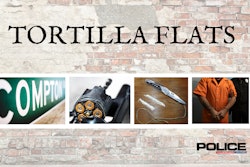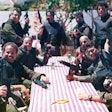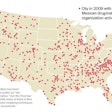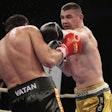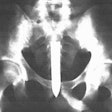Recently I have felt the sting of criticism from a few fellow gang experts and from prosecutors for occasionally testifying as an expert for the defense. Intelligent people with different opinions can honestly disagree. But this is a subject that can be very controversial and will cause emotional responses from some.
I testified for the defense for the first time almost 20 years ago. One of the Prison Gang Unit’s long time reliable informants was arrested for possessing a firearm. His guilt or innocence was not an issue. The informant wanted my assistance to explain to the jury why he might choose to carry the weapon despite knowing it was against the law. I told the jury that the defendant was a valuable informant who had assisted us against some of the most violent Black Guerrilla Family members, and that because of his assistance to law enforcement, he had been identified as a police informant by the BGF. He was a walking dead man.
Several unsuccessful attempts to murder him had already been attempted by associates of the BGF gang. And this gang controls all of the Crip and Blood gangs on the streets of L.A.
Except for this one gun arrest, the informant had not reoffended by committing further criminal acts or violations of his conditions of parole for many years. But he was still a resident of South Central Los Angeles Section 8 public housing and he feared for his life every day. He had been warned by his parole officer (and me) not to carry a firearm, but he said that he “would rather be caught with one when he didn’t need it, than to be caught without one when he did.”
He was convicted despite my testimony. But the informant was satisfied, and I had done my part to explain the mitigating circumstances to the court.
On another occasion an informant was living with his new wife (a retired hooker) in a South Los Angeles apartment complex. This Informant’s brother had been killed in a home invasion robbery set up by his brother’s wife. This informant began to suspect his own wife, maybe from just paranoia.
The Informant began calling me to say he suspected that his new bride was having sexual relations with a male Belizean who lived in another part of the apartment complex. He gave me the license plate number of a vehicle which he repeatedly saw parked near his apartment when his wife was acting suspiciously. He also suspected that the Belizean was giving her crack cocaine.
One day the informant confronted the Belizean leaving his apartment and the two began fighting in the parking lot. The informant chased the rival away and returned to his apartment to argue with his wife. The male from Belize, called LAPD telling them that the informant had pulled a pistol and robbed him (of his car keys?). Although the LAPD never found any weapon, they arrested my informant for armed robbery and assault. The informant admitted the assault but denied the weapon and robbery allegations.
I read the LAPD report and went to talk to the informant’s bride. She told me that no gun had been involved that this was just the Belizean’s way of getting LAPD, who had a reputation of not responding, to respond. The informant’s wife and the informant had both told me in separate interviews that the Belizean had dropped his car keys as he ran from the parking lot. The plate numbers given to me by the informant weeks earlier matched the Belizean’s car.
I called the LAPD station detectives, but they said they could not help me or my informant. I wrote up my own investigation and interview reports and provided them to LAPD and the DA’s office, but they went to trial anyway. When I testified at the trial the Deputy DA held up a huge Monopoly “Get Out of Jail Free” card in front of the jury as I testified. However, she could not fool that jury, and they took only five minutes to acquit the informant.
[PAGEBREAK]
I know some gang cops who insist that testifying for gang members and for the defense is despicable and the equivalent to sleeping with the enemy. They say that no case or informant is worth “compromising our ethics.”
However, I have noticed these same complainers are not the greatest expert witnesses on the stand any way.
I say that the truth is the truth, and there are sometimes mitigating circumstances in a case. An expert should be a credible proponent of the truth, and not an advocate for either the prosecution or the defense. Because of what we do and our knowledge of gangs, 95 percent of the time this will benefit the prosecution, but on occasion our knowledge and experience might benefit the defense.
I am not talking about those “gang experts for hire” who modify their expert opinions to suit whoever is paying them. These former cops are no different than the off-duty cops who prostitute themselves selling their guns as body guards protecting drug dealing, gang associating, rock ‘n’ roll stars and rap singers.
I am talking about you working cops who really do develop expertise in any number of fields like drugs, traffic, or gang cases. You are supposed to be Officers of the Court. Do you mean to say that you really would not carry out the promises you made to your informants? Would you really refuse to testify behalf of someone because your peers might not like it? Isn’t that what gang members do? If your troubled nephew or niece got in the mix with a gang would you refuse to come to his or her aid in court?
All crimes committed by gang members are not gang crimes, committed for the benefit of the gang (as described in the California Penal Code 186.22pc). Gang members have been known to steal from each other; to cheat each other in dope deals; to fight over gambling, money, and women; and to sometimes kill other gang members for very personal “non-gang” reasons. These crimes are not committed for the benefit of the gang.
I was present in Long Beach when one inexperienced “gang expert,” (who had already claimed that all crimes committed by gang members were gang crimes), was asked, “Don’t gang members commonly identify their gang by yelling their gang name after a shooting?” “Yes,” he said. “Didn’t my client tell the shooter, “…you shouldn’t have done that?” “Yes,” the expert said. “If this shooting was a gang shooting wouldn’t he have yelled something like ‘rifa?’” The gang expert had to admit he did not know what rifa meant. After a few more questions, the judge dismissed the case against the shooter’s companion.
Another common tactic for the defense is to ask the police gang expert if he has ever testified for the defense. This usually results in a “No.” The defense attorney will then attempt to make this seem like the gang expert is prejudiced for the prosecution and against the defense. But even being able to say (even once) that you have testified for the defense, disarms this argument.
I testified once for a Mexican Mafia associate in Orange County. I did this one because this man had worked as an informant for a federal task force that I was part of. The FBI had promised to come to his aid if he got in trouble with the law. While he was in Las Vegas, his crew took a job in Orange County kidnapping the son of a rich businessman. The victim’s siblings had hired the crew because the son was spending all of the father’s money and ruining the family business. Something went wrong and the kidnap victim was killed. Because the FBI informant was the crew leader, Orange County charged him along with the crew with the murder.
The FBI had “closed out” the informant prior to this, and so a California Department of Corrections, Special Services Unit (SSU) Agent and I kept the promise and testified for the informant. It didn’t do any good, the Orange County Jury was unconvinced and convicted the informant anyway.
If you can’t find any merit in any of the cases I have described; then for you, don’t ever testify for the defense. But don’t bad mouth the other experts who honestly disagree. It is not always about who wins and who loses; it is about keeping your promises, being objective, and giving credible truthful testimony. “Let the chips fall where they may,” and let the judge and jury make the call.







